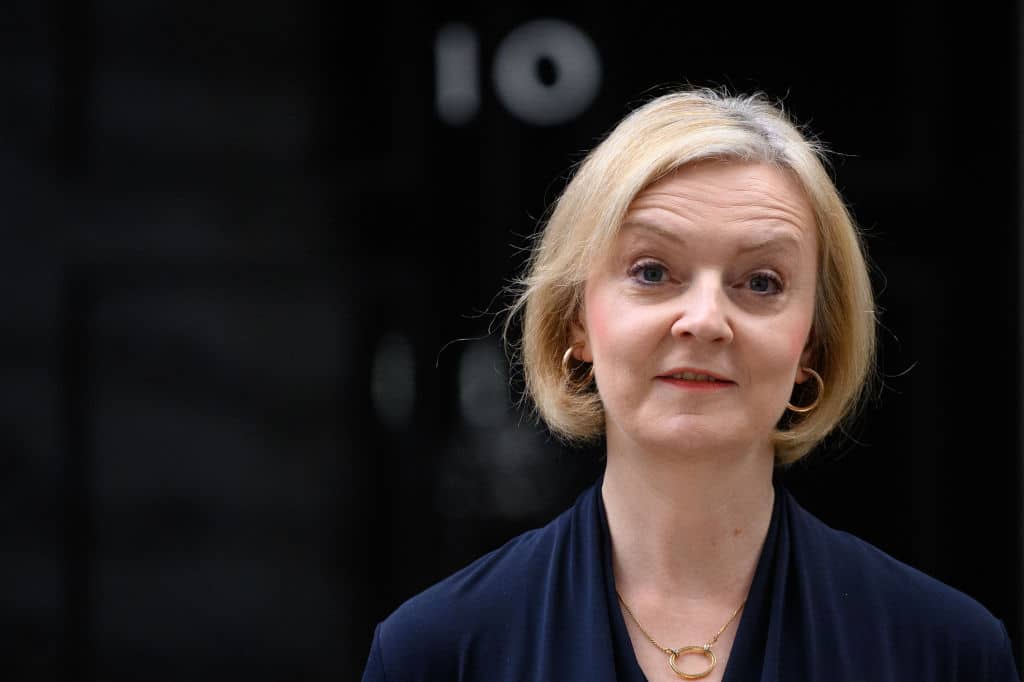TOPLINE
U.K. Prime Minister Liz Truss has resigned after just six weeks in office, marking an abrupt end to the shortest premiership in British history after weeks of policy flip-flops, disastrous u-turns and economic chaos.
KEY FACTS
Speaking from Downing Street, Truss said she was stepping down as leader of the Conservative Party as she could not deliver the mandate on which she was elected.
There will be an election within the party to select her replacement as leader and prime minister, she added, which will be “completed within the next week.”
Truss said she will stay on as prime minister until her successor is chosen.
Her resignation comes a day after she told lawmakers she was a “fighter, not a quitter,” and vowed to remain in office, her latest u-turn in a series of embarrassing reversals that have characterized her tenure at Number 10 Downing Street.
KEY BACKGROUND
Though short in duration, Truss’ time at Number 10 Downing Street has been eventful. Queen Elizabeth II died just days after she assumed the role after more than 70 years on the throne, triggering a period of national mourning and kicking-off the monumental effort for the monarch’s large state funeral and the formal accession of King Charles III. Once the period of mourning finished, Truss introduced a series of surprising fiscal policies—including unfunded tax cuts that disproportionately benefited the wealthy—that sparked domestic outrage, spooked markets and sent the pound plummeting to record lows. In a series of dramatic u-turns, Truss abandoned most of the policies and fired finance minister Kwasi Kwarteng. Truss limped on until Wednesday, when another top minister, Suella Braverman, quit the cabinet and a key government vote descended into chaos. Many lawmakers, including those from her own party, publicly called for Truss to leave and she holds the dubious record of the country’s least popular prime minister in the history of polling.
BIG NUMBER
45. That’s how many days Truss has held the post of prime minister for. She is the shortest-serving prime minister in U.K. history, barring a very long extension to the leadership election timeline she set out when resigning. George Canning, who has the second-shortest tenure, served for 119 days before dying in 1827.
FURTHER VIEWING
The lettuce won and is now partying. A days-old lettuce purchased at a supermarket has managed to outlast Liz Truss. The lettuce, complete with googly eyes and a blonde wig, was live streamed by British tabloid the Daily Star, asking: “Will Liz Truss outlast this lettuce?” Amid political turmoil, the vegetable became something of a celebrity and captivated the nation. It even garnered international media attention in its efforts to outlast the beleaguered prime minister. The lettuce can now be seen with a smiley face, several fruit companions, alcoholic drinks and party lights on the live stream, along with celebratory music.
WHAT TO WATCH FOR
Leadership contest. Truss’ departure will trigger yet another leadership race among Conservative politicians. The winner will become both party leader and the next prime minister. Lawmakers are reportedly loath to repeat the drawn out process used to replace Boris Johnson earlier this year and Truss’ timeline rules this out, though it is not clear who will stand and who can unify the party, especially after the division of recent months. Former finance minister Rishi Sunak, who came second to Truss in the contest to replace Johnson, Leader of the Commons Penny Mordaunt and even former prime minister Boris Johnson are among those to have been floated as possible contenders.
TANGENT
Constitutionally, a prime minister that can command a majority in the House of Commons has a right to serve in the role until the next general election. There are no set dates for general elections in the U.K. and under current rules the next one can be held no later than January 2025. To call one, a prime minister must formally seek one from the sovereign or the government must lose a formal confidence motion or a vote it has billed as a confidence issue. Opposition parties have demanded an election following Truss’ resignation and public pressure is mounting. An election is unlikely to go well for Truss’ Conservative party and polls project a devastating defeat and a landslide victory for Labour. Some polls even suggest an election would be so bad as to push the Conservatives out of opposition as well as government.
FURTHER READING
‘12 Hours’ To Save Her Job: Britain’s Government On Brink Of Collapse As Liz Truss Clings To Power (Forbes)
Liz Truss Is The U.K.’s New Prime Minister. Here’s What To Know About Boris Johnson’s Successor (Forbes)
By Robert Hart, Forbes Staff
